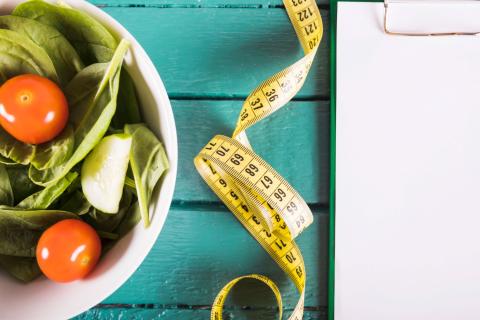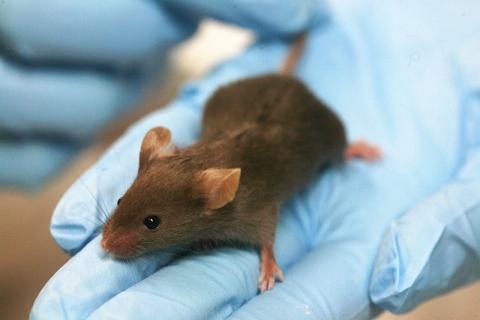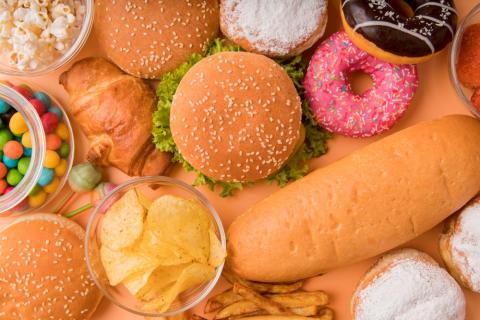IMDEA Food
If you are the contact person for this centre and you wish to make any changes, please contact us.
Principal Investigator of the Cellular and Molecular Gerontology Lab
Professor of Preventive Medicine and Public Health at the Autonomous University of Madrid, researcher at CIBERESP and IMDEA-Nutrition
Director of Nutrition and Genomics at Tufts University in Boston (USA), member of IMDEA-Alimentación (Madrid) and CIBEROBN (Carlos III Health Institute)
Nutritional epidemiologist at CIBERESP and IMDEA Food, professor at the Autonomous University of Madrid, and assistant professor at the Harvard School of Public Health
Head of the Metabolic Syndrome Group (BIOPROMET) at IMDEA Food

Adopting a healthy diet at age 45 can add between two and three years to life expectancy in men, and between 1.5 and 2.3 years in women, according to a study based on data from more than 103,000 people in the United Kingdom. The positive impact is greater for men who follow a diabetes risk reduction diet (DRRD) and for women who follow a Mediterranean-style diet (AMED), says the article published in Science Advances.

An international team has analyzed data from nearly 60 studies involving more than 48,000 children with different types of diets and compared the nutritional profile and various health parameters between those following vegan, lacto-ovo-vegetarian, and omnivorous diets. The results indicate that plant-based diets, if well-planned, can promote healthy growth with benefits such as a better cardiovascular profile and lower cholesterol levels. However, they may have difficulty achieving adequate levels of vitamins D and B12, calcium, iron, and zinc. According to the authors, the findings underscore the need for careful planning and supplementation in children following these types of diets. The study is published in Critical Reviews in Food Science and Nutrition.

The Planetary Health Diet promotes environmentally sustainable consumption, based, among other things, on increasing vegetable intake and reducing dairy and red meat consumption. Previous studies had found an association with better human health, although there were some conflicting results. Now, a study combining two cohorts of more than 150,000 people and a meta-analysis of 37 studies involving more than three million volunteers reinforces this association, finding that greater adherence to the diet is associated with lower all-cause mortality. The results are published in the journal Science Advances.

Adipose tissue retains a ‘memory’ of obesity through cellular transcriptional and epigenetic changes that persist after weight loss, which may increase the likelihood of regaining weight, experiments in human and mouse cells show. The findings, published in Nature, could help explain the problematic ‘yo-yo effect’, the rapid weight rebound often seen with dieting.

A ketogenic diet improves the results of a pancreatic cancer therapy in mice, according to a study published in Nature. The US research team fed the animals a high-fat, low-carbohydrate diet before administering them a new drug, currently in clinical trials; in the absence of glucose, the body converts fat into ketone bodies. The drug blocks the metabolism of fat - the cancer's only source of energy while the mice are on this diet - and slows the growth of pancreatic tumours.

Eating more ultra-processed foods is linked to a higher risk of health problems, according to an umbrella review of 45 previous meta-analyses, involving almost 10 million people in total. The research, published in The BMJ, finds direct associations between exposure to ultra-processed foods and 32 health parameters. The strongest evidence links this exposure to cardiometabolic health problems, mental disorders and overall mortality.

A US research team has identified several genes that may be associated with a strict vegetarian diet. Some of these genes have "important roles in lipid metabolism and brain function", according to the paper, which suggests that these differences could explain the ability to subsist on a vegetarian diet in those who carry these genes. The study, published in the journal PLoS ONE, used data from the UK Biobank to compare a group of more than 5,000 vegetarians with a group of more than 320,000 non-vegetarians.

A new scientific statement from the American Heart Association published in the journal Circulation analyzes how several diets (including Mediterranean, Paleo, and ketogenic) fit into the guidelines for a heart-healthy diet. The ketogenic and 'paleo' diets were not classified as heart-healthy.

Research published in Science concludes that mice that feed at night - the active phase of their daily circadian cycle - burn more calories, mitigating the development of obesity.

Caloric restriction (substantially reducing food intake in a controlled way) prolongs longevity in many animal species. A new result in mice, published in Science, finds that this effect is greater if the animals only eat during the body's natural active phase.